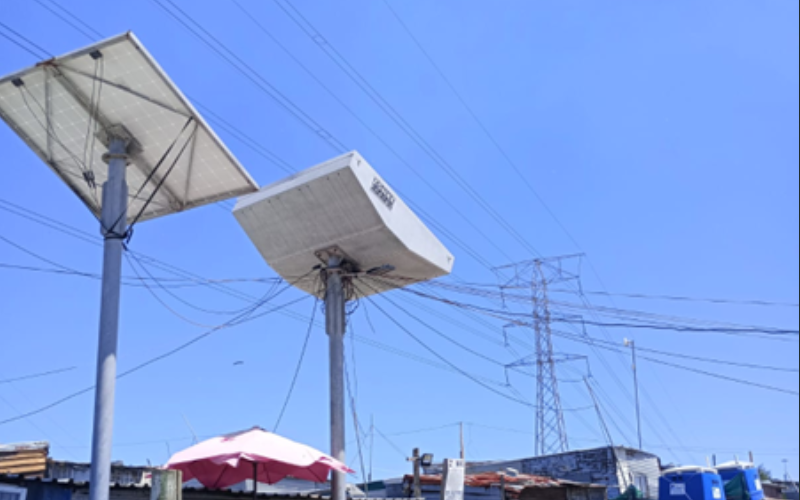Understanding the impacts of infrastructural disruption in informal settlements in Cape Town, South Africa

This project investigated the impacts of infrastructural disruption on the health and wellbeing of the residents in Qandu-Qandu informal settlement in Cape Town, South Africa. Cape Town is the most unequal city in South Africa, with over 10% of households in the city living in informal dwellings or backyard dwellings. Being one of the youngest informal settlements in Cape Town, Qandu-Qandu is not connected to formal infrastructure services, therefore residents live under conditions of significant infrastructure and service provision gaps.
These gaps are most felt in the areas of energy and electricity, water and sanitation, housing and access roads. In addition to impacting livelihoods, the infrastructural gaps also have knock-on effects on people’s wellness and mental health. Therefore, the specific objective of the project was to uncover the linkages between infrastructure in deprived urban settings and mental health and wellness of residents in these communities.
As part of the project, an extensive field trip was undertaken in February/March 2024. The field trip started with a settlement walk which offered valuable insights into the status of existing key infrastructures in the settlement. This was followed by focus group discussions, one-on-one interviews, and informal interactions with residents in the settlement.
The insights drawn from this exercise will contribute to knowledge on the linkages between infrastructure gaps and continuous traumatic stress among vulnerable urban populations, which remains a little understood topic. Findings from the project will also form an evidence base for policy and infrastructure provision in informal settlements that advances equitable cities with healthy, productive urban populations. This is in line with global sustainable development goals and agenda, as well as South Africa’s National Development Plan 2030 one of whose aims is to significantly reduce extreme poverty and inequality by 2030.
This project built onto a previous project (the UMBANE project) which facilitated the installation of over ten solar micro grids in Qandu-Qandu. More information about the UMBANE project here.
People
- Prof. Priti Parikh (UCL)
- Prof. Federico Caprotti (University of Exeter)
- Penlope Yaguma (UCL)
Partners
Zonke Energy (Cape Town)
Funding
The project is funded by a British Academy APEX Award.
 Close
Close

